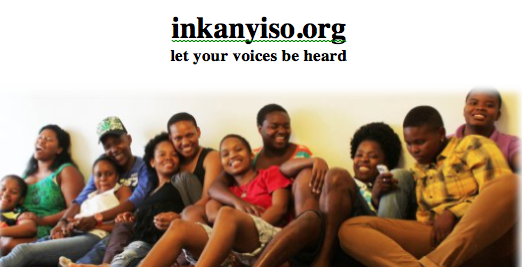KPFA Evening News, 02.17.2013 By Ann Garrison
South African President Jacob Zuma, in his State of the Union address, promised to speed the pace of land redistribution and housing construction to replace the country’s urban shantytowns, but nearly 20 years after the end of apartheid, the number of people living in shantytowns has doubled and the state violence to evict the residents has increased.
KPFA Evening News Anchor Anthony Fest: South African President Jacob Zuma delivered his State of the Union address last week, but his promises rang hollow to many South  South African President Jacob Zuma’s State of the Union address as seen on the South African Broadcasting Corporation Africans who feel that little has changed for the majority of Black South Africans since apartheid. KPFA’s Ann Garrison filed this report.
South African President Jacob Zuma’s State of the Union address as seen on the South African Broadcasting Corporation Africans who feel that little has changed for the majority of Black South Africans since apartheid. KPFA’s Ann Garrison filed this report.
KPFA/Ann Garrison: In his State of the Union address last week, South African President Jacob Zuma referred to the 100-year anniversary of the notorious Natives Land Act, which dispossessed and disinherited Black Africans.
 Almost twenty years after the end of apartheid, the number of people living in shantytowns has doubled and state violence to evict the residents has increased. South African President Jacob Zuma: Compatros and friends, in June we will mark the centenary of the 1913 Land Act which turned Black people into wanderers, laborers, and pariahs in their own land.
Almost twenty years after the end of apartheid, the number of people living in shantytowns has doubled and state violence to evict the residents has increased. South African President Jacob Zuma: Compatros and friends, in June we will mark the centenary of the 1913 Land Act which turned Black people into wanderers, laborers, and pariahs in their own land.
KPFA/Ann Garrison: Zuma then made promises to speed the pace of land redistribution and housing construction to replace the country’s urban shantytowns, as President Nelson Mandela promised upon taking office as the country’s president in 1998. To many Black South Africans, however, Zuma’s promises rang hollow, after the violent repression of last year’s wildcat mining labor strikes and other civil unrest.
And, because despite the government’s promise, the number of people living in shantytowns of South Africa has doubled almost twenty years after the end of apartheid. Government force and violence to remove the residents of the shantytowns has also increased. A recent film, “Dear Mandela” tells the story of the struggle of three young people who join the ‘people of the slums’ movement to fight for the constitutional rights of slum-dwellers to stay in their homes.
 The characters in Dear Mandela, from left: Mnikelo, Mazwi and Zama. Photo courtesy Dear Mandela.
The characters in Dear Mandela, from left: Mnikelo, Mazwi and Zama. Photo courtesy Dear Mandela.
This clip from Dear Mandela begins with a television news report about state violence against the slum dwellers.
Newscaster in Clip from “Dear Mandela”: . . .tear gas and bullets . . . To protest,disgruntled residents took to the streets. They’re demanding, among other things, immediate housing. Like many other residents across the country, they say elected officials have done nothing but enrich themselves.
Young South African activist: I would like to meet Dr. Nelson Mandela and ask him about how does he feel about these unstable conditions that we are living under, after he stayed about 27 years in Robben Island for the better life for all. He is like Jesus Christ himself. I do not like the fact that what he has been jailed for has never been achieved.
KPFA: Dear Mandela follows the slum dwellers’ legal challenge to the government’s attempt to bulldoze their makeshift homes and the film concludes with an uplifting legal victory. The film is streaming free until the end of February at PBS and blackpublicmedia.org. For Pacifica, KPFA and AfrobeatRadio, I’m Ann Garrison.
TO HEAR THIS PODCAST : http://www.anngarrison.com/audio/2013/02/407/18/dear-mandela-the-dream-you-went-to-prison-for-has-never-been-achieved
DEAR MANDELA theatrical trailer from Sleeping Giant on Vimeo.
Following the efforts of a South African housing rights group, the documentary “Dear Mandela” illustrates how fresh injustices have succeeded the inequality once enforced by apartheid. The directors Dara Kell and Christopher Nizza largely adhere to the standard arc of relating activist accomplishment, but the momentous historical backdrop and some stinging moments help lift the film.
The group, Abahlali baseMjondolo, advocates for Durban shack dwellers who are threatened by a proposed law that would permit rapid evictions. Replacement housing doesn’t emerge, except for crude “transit camps” far from the city center. Government and police representatives stonewall and whitewash; protests build solidarity and burst with song, but they also elicit counter-protests and intimidation.
South Africa’s comedown from post-apartheid unity has been going on for a while, but “Dear Mandela” usefully outlines the forces of exclusion and generational shifts that have arisen. The tensions over urban development echo experiences in cities the world over. Yet the enabling role played by the African National Congress, the party of Nelson Mandela, represents a special disappointment, especially for one of our guides, a youth leader named Mazwi.
Still a teenager, Mazwi symbolizes the continuing growing pains of securing a homeland for everyone.
SEE ALSO http://www.dailymaverick.co.za/article/2013-02-13-uganda-transit-camp-durban-a-report-from-the-frontlines-of-the-struggle-for-democracy/




















 PoochParkWear customizes hoodies and t-shirts, the good, the naughty, the in between, whether proud or quirky let them be seen. We also offer biker jackets, croc or pleather collars, a variety of collar charms, and our special Zinja beaded collars made by a co-op of HIV-positive South African women, the Sisonke women who weave the beads onto the collars.
PoochParkWear customizes hoodies and t-shirts, the good, the naughty, the in between, whether proud or quirky let them be seen. We also offer biker jackets, croc or pleather collars, a variety of collar charms, and our special Zinja beaded collars made by a co-op of HIV-positive South African women, the Sisonke women who weave the beads onto the collars.

Leave a Reply